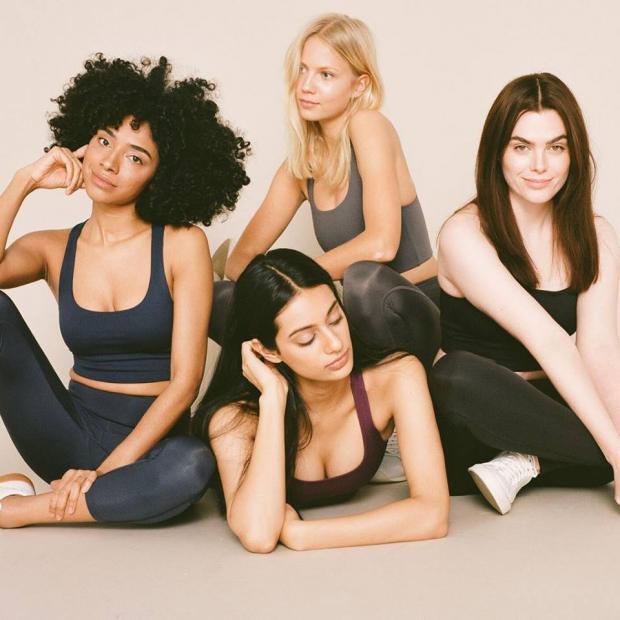The American label Girlfriend Collective has its roots in Asia, Taiwan to be more precise where, Quang Dinh and his wife Ellie witnessed recycling being transformed into a community event. Several evenings a week, people gather on the streets in Taiwan to sort their waste into passing rubbish trucks – separating recyclables from food waste and all the rest. The community takes the opportunity to come together and talk – turning a chore into an enjoyable social event. Just 20 years ago Taiwan had the nickname “Trash Island” because of its huge garbage problem. Today, the island state with the official name the “Republic of China” is seen as a world leader in recycling.
When Dinh and Ellie discovered a factory in Taiwan that made yarn from recycled plastic bottles, the idea was born for Girlfriend Collective: a label that produces clothes without putting any strain on natural resources, and at the same time is committed to ethical production practices and social justice for garment workers.
How Girlfriend Collective Works
The first piece that Dinh and Ellie developed for Girlfriend Collective was a pair of leggings. Since then the range has expanded to include more female sportswear, but all articles have one thing in common: They are mainly made of polyethylene terephthalate – or, in other words – one-use plastic bottles. As Girlfriend Collective asserts on the website, this form of plastic does not contain any BPA (which is thought to interfere with hormones), similar to harder plastic bottles that are intended for reuse. A pair of leggings contains approximately 25 plastic bottles.

When chosing the recycling facility in Taiwan, Girlfriend Collective made sure to choose one that actually works with post-consumer plastic. This is is important in China because it has become a business there to simply resell new and unused plastic bottles directly to the recycling facilities rather than use genuinely recycled ones.
The yarn produced in Taiwan then goes to a weaving mill in Vietnam that has been awarded the International Certificate for Safe and Fair Working Conditions (SA8000), where the fabrics are woven. Factories awarded this certification have proved that they do not use any forced or child labour. Girlfriend Collective places great importance on slow fashion: the weaving process they have chosen can only produce 100 pairs of leggings each 24 hours. When it comes to the packaging materials, the label also ensures that all components are both 100 percent recycled and 100 percent recyclable.
Girlfriend Collective is a good example of how eco-friendly clothing can be just as stylish as mainstream fashion. The company also shows that it is possible to create new, high-quality products from existing raw materials without exploiting natural resources. One major issue remains, however: clothes made from recycled plastics ultimately leads to more microplastic in the environment, with tiny plastic fibres shedding from the clothes every time you wash them. Devices like the Cora Ball or the Guppy Bag could help, but the best thing would of course be to completely dispense with plastic and use recycled plastic in those fields – such as for healthcare, for example – where there’s simply no avoiding it.
This is a translation by Marisa Pettit of an article that originally appeared on RESET’s German-language site.






